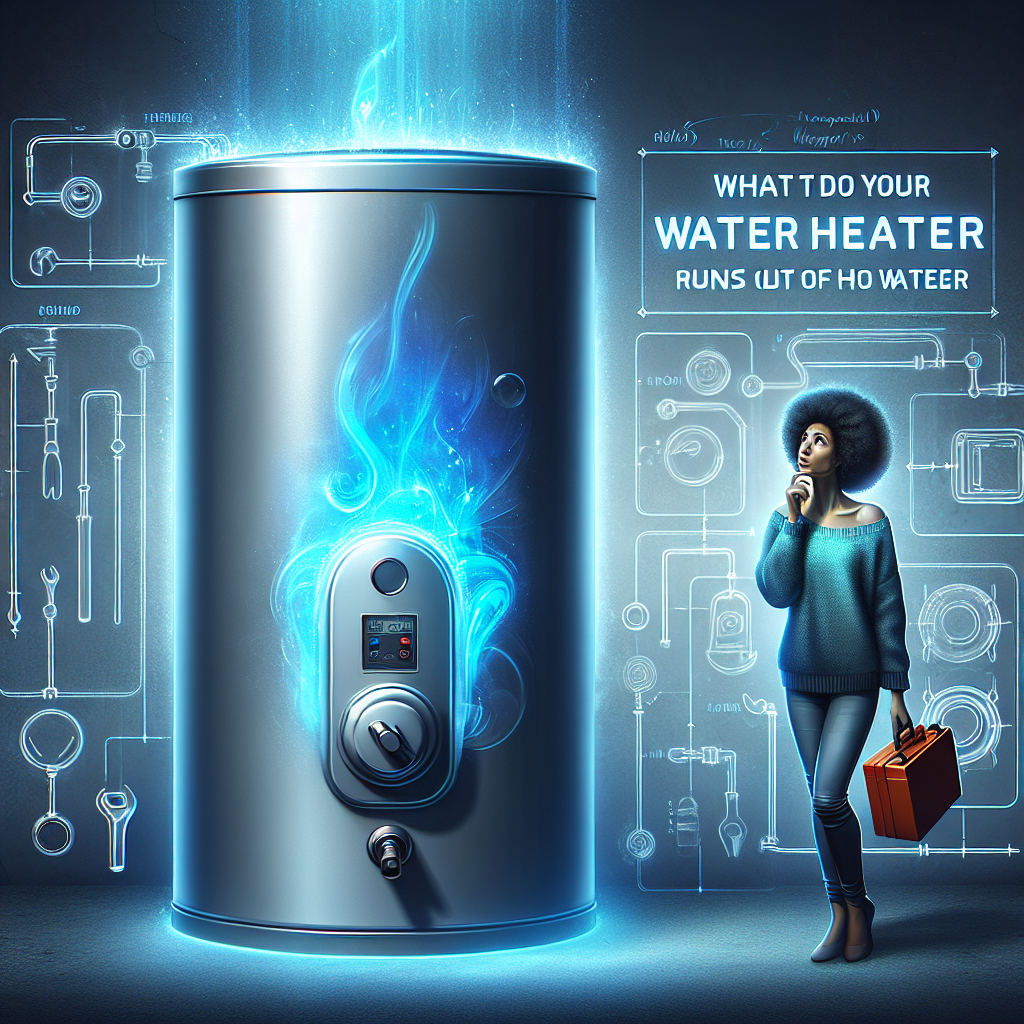Having a consistent supply of hot water is essential for everyday tasks such as showering, washing dishes, and laundry. However, encountering a situation where your water heater runs out of hot water can be frustrating. Fear not! In this article, we will explore the possible reasons for running out of hot water and provide actionable steps to address the issue.
Understanding Your Water Heater
Types of Water Heaters
Before diving into troubleshooting, it’s essential to understand the type of water heater you have. The two main types of water heaters are:
- Tank Water Heaters: These are traditional models that store a specified amount of hot water in a tank.
- Tankless Water Heaters: Also known as on-demand water heaters, these units heat water directly without storing it.
Each type functions differently, influencing how you manage hot water availability.
Why You Might Run Out of Hot Water
1. Increased Hot Water Demand
One of the most common reasons for running out of hot water is simply using more than what your heater can provide. For instance, if multiple family members shower in succession or if you’re doing laundry while cooking, you may exceed the heater’s capacity.
2. Thermostat Issues
The thermostat controls the temperature of your water heater’s water supply. If it’s malfunctioning or set too low, you may not get hot water when you need it.
3. Sediment Buildup
Over time, sediment and mineral deposits can accumulate in your water heater, specifically in tank models. This buildup can diminish the efficiency of your heater, making it take longer to heat water or leading it to run out quickly.
4. Aging Water Heater
Water heaters have a finite lifespan, typically ranging from 8 to 12 years. If your heater is approaching or has passed this age, it may struggle to provide adequate hot water.
Troubleshooting When You Run Out of Hot Water
Assess Your Hot Water Usage
Begin by evaluating your daily hot water consumption. Are you using multiple appliances that require hot water simultaneously? If so, consider staggering usage times. Develop a schedule, such as showering at different times to ensure hot water availability for everyone.
Check the Thermostat Settings
If you suspect the thermostat is set too low, it might be time for an adjustment. Most water heaters are set to 140°F (60°C), which is generally sufficient. If yours is much lower, consider raising it slightly. However, never exceed 150°F (65°C) to avoid scalding.
Inspect for Sediment Buildup
If you have a tank water heater, sediment may be the culprit. To check for sediment buildup:
- Turn Off the Water Heater: Switching off the power supply to your heater is crucial for safety.
- Flush the Tank: Connect a garden hose to the drain valve at the bottom of the tank and flush out any sediment. It’s a good idea to do this annually to maintain your heater’s efficiency.
Seek Professional Help
If you’re still having issues after trying the above suggestions, it might be time to consult a professional. Certified plumbers can accurately diagnose and fix issues that may not be easily noticeable.
Upgrading Your Water Heater
Considerations for Replacement
If your water heater is aging or frequently running out of hot water, it may be time to invest in a new unit. When considering an upgrade, keep the following in mind:
- Size: Make sure to choose a size that meets your household’s needs.
- Energy Efficiency: Newer models often come with better energy efficiency, which can save you money in the long run.
- Type: Decide whether a tank or tankless model is more suitable for your lifestyle.
Understanding the Costs
While purchasing a new water heater can be an investment, consider the long-term savings from increased energy efficiency and reliability. Research local incentives or rebates for energy-efficient appliances to help ease the cost.
Conclusion
Experiencing a lack of hot water can be an annoying inconvenience, but with a little troubleshooting and understanding, it’s usually a manageable problem. Start by assessing your usage patterns, checking thermostat settings, and inspecting for sediment buildup. If needed, don’t hesitate to reach out to professionals for assistance. If your heater is aging, consider an upgrade to enhance your home’s comfort and efficiency.
Stay Prepared for the Unexpected
To prevent running out of hot water in the first place, make a habit of regular maintenance on your water heater. This proactive approach can save you from surprises in the future, ensuring that your home remains a haven of comfort.
With these tips in mind, you can confidently tackle any challenges your water heater may present and maintain your daily routine without interruption.


